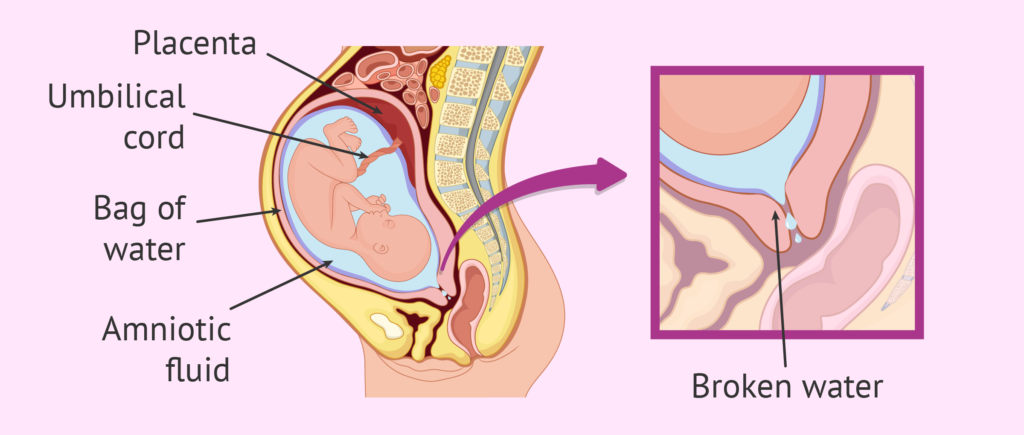
Preterm Pre-labour Rupture of Membranes (PPROM): Causes, Risks & Management Options
Pregnancy is a beautiful journey that comes with moments of joy, anticipation, and sometimes unexpected challenges like preterm pre-labour rupture of membranes. This is a condition in which the amniotic sac ruptures before 37 weeks of gestation and before labor starts. Around 3% of pregnancies are affected by PPROM, but thankfully, it can be effectively managed with skilled obstetrician- gynecologists like Dr. Neha Gupta. With her years of expertise and compassionate approach, Dr. Neha offers PPROM treatment in Noida, ensuring the best decisions for both mother and baby.
Read this blog explaining preterm pre-labour rupture of membranes, its causes, risks involved, and how to manage the condition with effective treatment options.
PPROM Treatment in Noida : An Overview
Preterm pre-labour rupture of membranes is also known as preterm premature rupture of membranes or PPROM. Under this condition, rupture of the sac (amniotic membrane) occurs before 37 weeks of gestation and before the beginning of labor pains. It is a more concerning issue in pregnancy, which leads to infections and preterm birth. During pregnancy, your baby develops inside a bag of fluid known as an amniotic sac, which ruptures when the baby is mature and is ready to be born. The amniotic sac ruptures, and the fluid comes out through the vagina. This is known as the waters breaking or ruptures of the membranes.
Women with PPROM can experience leaking of fluid from their vagina, foul-smelling vaginal discharge, decreased fetal movement, and uterine contractions.
If you are also noticing these signs during your pregnancy, contact Dr. Neha Gupta, a renowned gynecologist for PPROM treatment in Noida.

What Are the Causes of Preterm Pre-Labour Rupture of Membranes?
The causes of preterm pre-labour rupture of membranes in most cases are often unknown. But it is believed to be caused by an infection or due to problems with the placenta.
Who is at Risk of Preterm Pre-labour Rupture of Membranes?
The following are the things that can increase your risk of developing preterm pre-labour rupture of membranes:
– Infection in the reproductive system, such as genital or intrauterine infections
– Having a previous history of PPROM or premature birth
– Smoking during pregnancy
– Nutritional deficiency or low body mass index
– Bleeding during pregnancy
– Multiple pregnancy
– Direct abdominal trauma
– Preterm labor
Contact our expert, Dr. Neha Gupta, a renowned gynecologist in Noida, if you are also at risk of having PPROM to get effective management.

PPROM Treatment in Noida : Dr. Neha Gupta
If your water breaks, you must immediately seek medical attention from your healthcare provider. The treatment option for preterm pre-labour rupture of membranes depends on the symptoms, severity of the condition, pregnancy, and overall health. Here are some of the treatment options for PPROM, which include the following:
– Hospital stay and bed rest
Under this, you will be admitted to the hospital where your healthcare provider will closely look after you and your baby’s health. Regular monitoring is conducted to check for signs of infection, fetal well-being, and uterine activity. Bed rest is also advised to reduce stress on the body and prevent early labor.

– Medicines
Medications are one of the treatment options for PPROM, which include antibiotics, corticosteroids, and tocolytic medicines, which can treat infections in the uterus, help the baby’s lungs mature faster and temporarily delay labour if necessary so that other treatments can take effect.

– Induction of labor
When a pregnancy reaches 34 weeks or more and if there is a sign of infection or any fetal distress, then your doctor might decide to induce your labor early. This is done to protect the health of you and your baby, as letting it happen naturally can lead to serious complications.
Are You Dealing With Pregnancy Complications? Consult Dr. Neha Gupta For Expert Guidance And Compassionate Care.
If you are seeking PPROM treatment in Noida, consider consulting Dr. Neha Gupta, a renowned gynecologist, for treating complex conditions with ease.